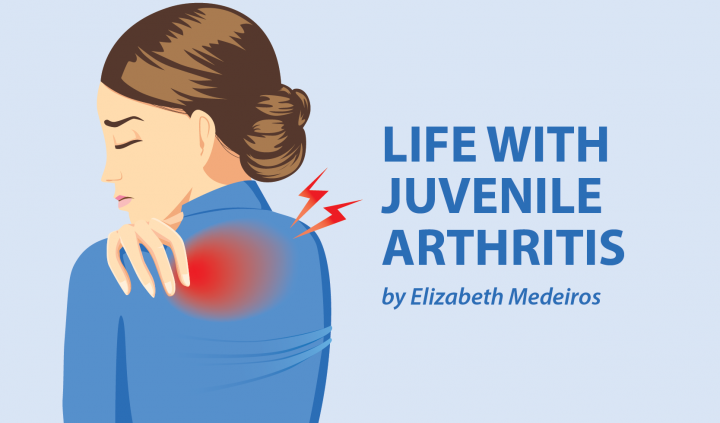I’m a giant Disney nerd. So when “Inside Out” came out a few years ago, I had to see it. While I loved the jokes and colorful animation, I was impressed with how the movie handled such complex emotions. Rather than just watching the story of Riley, a young girl traumatized by her cross-country move, we are taken inside her mind and see the story from the point of view of her five emotions: Joy, Fear, Sadness, Anger, and Disgust.
Personifying emotions is a great way to help kids navigate difficult situations, such as coping with a chronic illness. You may not think to talk to your child about their emotions regarding juvenile arthritis; the invisible nature of the disease can sometimes make you forget what an impact it has on their emotional help. But these characters are particularly helpful for kids since they may be feeling many emotions at once regarding their JA.
If your child seems to be having a hard time coping with JA, it may help to watch the movie together then talk about the emotions and how they interact.
Sadness
Receiving a diagnosis, coming out of remission, flaring, and accepting that JA may follow you into adulthood can all cause great sadness. It’s reasonable for anyone to feel sadness or even depression while coping with that reality.
But don’t be quick to try to shoo away Sadness! During the movie, she taught us that we need to express our sorrow to be able to grow. Riley tried to smile through the pain, but it only made the situation worse. She was only able to move on when she was able to show that she was sad and talk to her parents. Kids with chronic pain are often forced to smile through the pain, but remember, sometimes they need to talk about their feelings.
Anger
Anger gets enough recognition when it comes to chronic illness. Of course, Anger will be there anytime JA gets in the way of the fun, whether your child needs to sit out during a birthday party or gets a flare just in time for prom.
But Anger may also come into play on days when your child isn’t feeling well. Not feeling well or rested can easily make you cranky and irritable. It’s important to remind kids that it’s OK to feel anger, but nothing good happened when Riley let him call the shots! It’s essential to express our anger in healthy ways.
Disgust
Disgust was a funny character, but she was toxic in large doses. She may complain about how other kids can do such-and-such so much better than your child can. Or that other kids don’t have to take as much medicine or go to the doctor as often. It’s important to remind your child that it’s natural to feel this way while trying to stay positive and focusing on the things you can do.
Fear
It’s no surprise that I have to mention Fear and the worries he puts in children’s heads. There are many fears both children and parents have about JA. Parents fear for their child’s health and future. Kids may also worry about those things, in addition to others.
Fear may bring worries of being bullied due to JA, which can be a realistic scenario. Fear may also burden your child with ideas that perhaps they caused their JA because they did something bad. Talking to your child about Fear is vital: Not only does it allow them to express their emotions, but it allows you to educate them more on their disease.
Joy
And the best for last — Joy! Though I added her last, she’s certainly not the least. It sounds odd to talk about happy feelings regarding JA, but I promise there will be times she comes. This is especially true if your child is achieving their health goals and is doing well with treatment.
But Joy can be found even when JA doesn’t seem to be going away. Kids who go to JA camps or other meetups and programs may be grateful for the friends they’ve made through their condition. And while not all kids may feel this way, some may be happy JA allows them to skip certain activities, like gym class (I loved not having to play dodgeball).
Everyone has different emotions
No two people will feel the same way. The important thing is to talk to your child and start an open dialogue. Parents, try to be transparent with some of your emotions, too: joy and sadness. It helps to know you’re not going through these feelings alone.
***
Note: Juvenile Arthritis News is strictly a news and information website about the disease. It does not provide medical advice, diagnosis, or treatment. This content is not intended to be a substitute for professional medical advice, diagnosis, or treatment. Always seek the advice of your physician or other qualified health provider with any questions you may have regarding a medical condition. Never disregard professional medical advice or delay in seeking it because of something you have read on this website. The opinions expressed in this column are not those of Juvenile Arthritis News, or its parent company, BioNews Services, and are intended to spark discussion about issues pertaining to juvenile arthritis.

